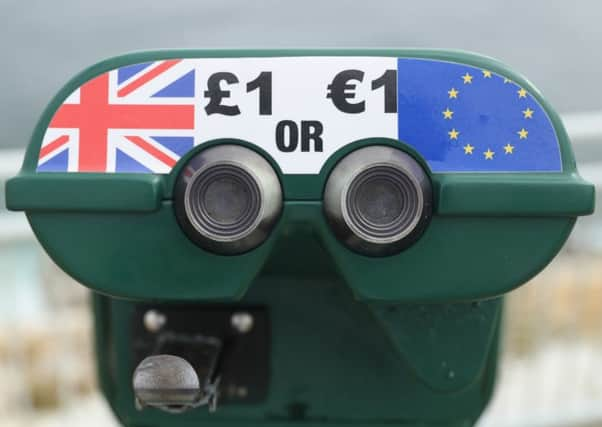Leader comment: Scots must make EU referendum votes matter


And so we reach the day of reckoning after four months of campaigning on the EU referendum. By this time tomorrow we will know if Britain is to remain a member of the economic union, or strike out alone again in protest at a loss of control to Brussels.
It is a momentous decision, but the occasion itself lacks any sense of atmosphere here in Scotland. South of the Border, the debate has been lively, even if its energy has been relentlessly negative. Political debate has taken place on the streets and passions have run high between the two sides, each giving as good as they are getting.
Advertisement
Hide AdAdvertisement
Hide AdBut here, the referendum has failed to capture the imagination, and a generous assessment of the level of interest would be that it is an improvement on the non-event that was the alternative vote referendum in 2011. Or perhaps the Edinburgh congestion charge vote in 2005.
On the eve of the independence referendum two years ago, the febrile atmosphere was incredible. None of us had ever seen anything like it. In some streets, every window was a vantage point for a campaign poster. But ask yourself how many Remain or Leave posters have you seen in house windows in Scotland over the past week as the campaign reaches its height. Anyone who responds with an answer in double figures must have double vision. How many of us could even hazard a guess at what the campaign logos look like?
One line of argument goes that people are not engaged because they believe the result is a foregone conclusion, and it is true that Remain appeared to be home and dry for much of the debate. However, recent opinion polls have suggested consistently that the vote is going to be close, so those who want to stay in the EU should have been shaken from complacency by the narrowing of the margin between the two sides.
So is it simply the case that Scotland doesn’t care about the EU? We can’t say that at this stage, but it is abundantly care that Scotland cares less about UK union with the EU than it did about its own union with the UK.
Turnout at the 2014 referendum was an astonishing 84.6 per cent, the highest ever for an election or referendum in the UK. Rough estimates suggest today’s turnout could be over 20 points lower. That would be a crying shame, because in any referendum, every vote counts, and in this particular vote, we have no good reason to believe that the outcome will be anything but close.
Today we have the opportunity to have our say on a relationship which has shaped the last four decades – a decision which it is reasonable to assume will define the next four decades, at least. There is also the not insignificant prospect that Brexit could bring down the prime minister, and his government.
Every one of us should want a say in this matter, which could admittedly turn out to be a non-event, but also has the potential to make the UK a very different place. In the circumstances, it would be reckless to leave the UK’s political and economic future to chance. Use your vote, and use it wisely.
Sensible priorities for tackling crime
Police Scotland asking people what their priorities should be seems like a sensible move.
Advertisement
Hide AdAdvertisement
Hide AdFor a start, it will enable senior officers to get a proper grip on what the public want from the police, rather than simply accepting what ministers want done, or think should be done.
Policing will be far more effective with a clearer idea of the views of those being policed. It will also earn more support if the public feel they are being listened to.
There is further merit in the approach. The exercise also helps to demonstrate that policing has to change.
The creation of a single force has helped direct policing where it is most needed, such as against speeding – a known public priority.
However, other areas of concern like cyber crime – particularly involving child sex abuse – requires a lot of funding. With the force’s increasingly-stretched budget, this inevitably means officers cannot pursue every suspected crime.
The scale of the savings Police Scotland is having to make over the next decade – more than £1 billion – is very significant.
Public spending watchdogs have sounded alarm bells, warning of a potentially major funding gap in the next few years. That underlines the importance of sharpening the focus on areas of policing that matter to people.
It could make a big difference - if a push comes to shove – in helping to stave off the threat of any enforced cuts that might loom ahead.
Giving the public a say in what crimes they would like to see prioritised should encourage greater understanding and more realistic expectations of Police Scotland’s roles and challenges.